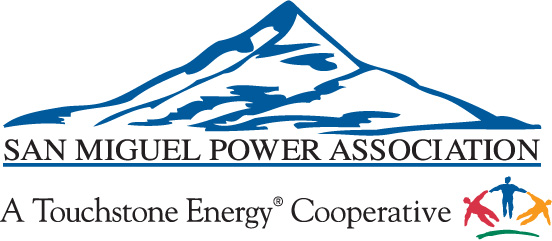SMPA to Investigate Diversifying Power Supply
At its regular Board Meeting in March, the SMPA Board of directors accepted two recommendations from the SMPA Staff: The first was to begin contractual negotiations on a transition away from its “All-Power-Requirements” contract with current wholesale power provider, Tri-State Generation and Transmission (Tri-State). SMPA may transition to a “Partial Requirements” contract, thereby allowing room in SMPA’s total power load, for service from another supplier. The other was to select a finalist from the recent SMPA Request for Proposals (RFP) for alternative power supply providers. The selected finalist was Denver-based Guzman Energy.
Since 2017, the SMPA Board has been evaluating its wholesale electric supply contract (WESC) with Tri-State and gathering the data necessary to determine if adding a different source of wholesale electricity would be advantageous to the membership. A detailed cost analysis was presented to the Board during a recent Executive Session. Based, partly, upon this analysis, the board, in open session, directed staff to move forward with the negotiations.
“Supplying a portion of our power from Guzman may yield significant cost reductions for SMPA,” said Board President, Rube Felicelli. But members are cautioned not to expect a retail rate decrease. “There are a number of unprecedented cost hikes affecting SMPA at this time,” said SMPA CEO, Brad Zaporski. “…including increased need for fire mitigation measures, increased tool and material costs due to inflation, increased cost of labor, the need for reliability improvement projects including a possible transmission line reconstruction project on Red Mountain, as well as likely wholesale rate increases from Tri-State.”
“The pressure is currently quite strong to recover more revenue through a higher access fee,” said Zaporski. “However, a reduction in overall wholesale costs could provide some relief.”
Asked why SMPA would not seek a full exit from Tri-State, like neighboring co-op, Delta-Montrose Electric Association (DMEA), Zaporski noted that Tri-State, as a member-driven cooperative, offers a number of significant benefits, including preferential access to the Tri-State transmission system, multiple points of risk mitigation, and financial aid for critical reliability projects.
“Even though the Board has given SMPA the go-ahead, it is still far from a final step in diversifying SMPA’s power supply,” said Board President, Felicelli. “Several critical pieces of the puzzle still need to be put into place.” For one, the methodologies of the Partial Requirements calculations still need final approval from the Federal Energy Regulatory Commission (FERC). Beyond that, new contracts will need to be negotiated and drawn up with both Tri-State and Guzman. “We are on the 50-yard line,” said Zaporski to illustrate the point.
Nonetheless, many are encouraged by recent developments, and even though the Board has signaled that retail rates will likely not go down, there are still a myriad of potential benefits to be realized, including:
- Lower carbon footprint
- Improved fire mitigation within the territory
- A more reliable grid
- Greater stability through diversification in wholesale rates
- Preserved Tri-State membership rights, including a seat on the Tri-State Board
- Lower pressure on retail rates
“The difficulties of the past few years have forced us to adapt,” remarked Felicelli. “But the changes we are making in response, have the potential to make us stronger than ever.”
